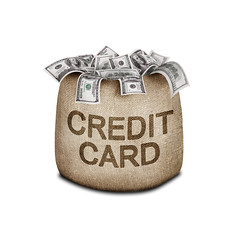- @ScottATaylor Thanks for following me. in reply to ScottATaylor #
- RT @ChristianPF: 5 Tips For Dealing With Your Medical Debt http://su.pr/2cxS1e #
- Dining Out vs Cooking In: http://su.pr/3JsGoG #
- RT: @BudgetsAreSexy: Be Proud of Your Emergency Fund! http://tinyurl.com/yhjo88l ($1,000 is better than $0.00) #
- [Read more…] about Twitter Weekly Updates for 2009-12-12
8 painless ways to save money
I saw this list on US News and thought I’d give my take on it.
- Get healthy. They are right. It is cheaper to be healthy…in the long run. Short-term, eating crap food is cheaper and obesity doesn’t get expensive until you are older. But remember, long-term planning is important. I intend to enjoy my old age, so I am working on losing weight and exercising. Fat and lazy is easy, but it won’t be in 50 years.
- Rethink your auto insurance. I don’t have an argument here. When I established my initial emergency fund, I set my deductibles to match it. We regularly review our policies to make sure they match what we need.
- Improve your credit scores. I don’t know what they were thinking with this one. If you’ve got lousy credit, it’s hardly painless to improve it. Digging out of a pit of debt hurts.
- Invest on the cheap. This is another one that’s hard to argue with. Low-fee funds are, by definition, cheaper. Will you get a better return on a fund with higher fees? It’s worth checking the historical return to see if the fee is justified.
- Think triple play. They recommend bundling your internet, TV, and phone. It is cheaper, but I don’t recommend it. I don’t like putting all of my eggs in one basket. If the cable goes down, or the the power goes out, I’d still like to be able to make a phone call, if I have to. My landline is independently powered, and I always make sure there is a corded phone plugged in somewhere. My basic landline only runs $35/month, so a bundle won’t save anything for me, anyway.
- Go prepaid with your cell phone. I have a coworker who pays, on average, $5/month for his cell phone. I use mine far more than he does. If you don’t talk much and don’t use data or texting, this can work out well for you.
- Shop online. I do shop online for a lot. I even buy my toilet paper online. For some things, I prefer to shop locally. When a store owner gets to know you, he can get you some fantastic deals, and give you advice that can save you a ton of money.
- Get cash back. I have a couple of decent cash-back credit cards, but I won’t use them. Until all of our credit card debt is paid, I won’t consider making regular use of any form of credit. Your mileage may vary, but that’s the condition I had to set on myself to make our debt plan work.
How many of these ideas do you use?
Is Your Budget Doing More Harm Than Good?
Do you stress over your money?
Is your spouse under the impression that you are constantly fighting over money?
Are you constantly fighting over money?
Have you completely eliminated your quality of life?
Do you spend hours each week analyzing where your money has gone?
A total budget can have a negative effect on the other parts of your life. If your spouse isn’t 100% on board, maybe he/she needs some “blow money” that doesn’t need to be tracked. If you aren’t spending enough time with your children because you are tracking expenses and adjusting your budget every day, you need to automate something, or at least loosen your standards. Maybe tracking every penny isn’t the right method of budgeting for you.
Don’t let the perfect budget destroy the rest of your life. If money is still a fight, you’re going to need to compromise on something, now, or you’ll end up compromising with the help of a divorce attorney.
Don’t forget, you are living now, not in the future. Plan for the future, but live in the present. There is a balance there, somewhere. Find it, or you and your loved ones won’t be happy.
Update: This post has been included in the Money Hacks Carnival.
What Is Your Binary Options Strategy?
 When you are just entering the world of binary options trading or investing, you may be on the receiving end of a lot of advice. It is not uncommon to hear people tell you to implement different gambling strategies because binary options are based on chance more than anything else. You will also hear a lot of advice from those who say there are many good ways to develop an effective strategy using indicators and market signals. Some will insist that with proper analysis of market data, a solid strategy can be developed too.
When you are just entering the world of binary options trading or investing, you may be on the receiving end of a lot of advice. It is not uncommon to hear people tell you to implement different gambling strategies because binary options are based on chance more than anything else. You will also hear a lot of advice from those who say there are many good ways to develop an effective strategy using indicators and market signals. Some will insist that with proper analysis of market data, a solid strategy can be developed too.
Are they all correct? Interestingly enough, the answer is yes. The reason for this is simple, and as one expert writes, “there is no such thing as a perfect strategy for every trader. There is only a best strategy for each individual trader.” Thus, your strategy has to be shaped around a few things:
- Your willingness and ability to follow your chosen strategy.
- Your personality. For instance, are you restless if you are taking the safe route or a higher risk strategy?
- Your budget and goals,
Identifying the answers to these questions is the first step to formulating a strategy. You should also understand that the winning percentage of most strategies will be somewhat constant, but the total number of successful trades varies on an individual basis and is based entirely on the strategies used.
For instance, some investors want a high percentage of winning trades and are more comfortable with risk averse trading. Others are ready to take more risk and are entirely comfortable winning fewer trades if the returns on winning trades are dramatically higher. This enables them to implement higher risk trades. The interesting thing about strategies and the kinds of trades they generate is that they are all built from the same data.
The Data of Strategy
For example, almost all strategies will look at issues like market trends, trading trends, highs and lows, reversals, and various kinds of indicators. The reason that high and low trends pay off in strategy development is simple: binary options trading applies to whether or not an asset rises above a strike price or doesn’t. It is the proverbial “yes or no” part of the proposition and analysis for either outcome pays off.
As an example, a lot of risk-averse investors will look for breakouts. They use these for trend line investing, which can be as brief as sixty seconds to a day, but can be used to coordinate investing in the direction of a short trend. Although this seems complex, it really is not. The key is that analysis cannot be broad and across all available markets. Instead, focused analysis on a specific area will allow even a novice investor to analyze for a breakout and then invest in binary options accordingly.
Just being able to detect a reversal or a downward trend over the course of a day can yield a very rewarding investment. The key is to understand your strategy based on your budget, personality, and your ability to stick with the strategy, even if it does not yield immediate success. When you do this, and use the right tools for analysis, you can create an effective strategy that brings you closer to your goals.
This is a guest post.
Back to Cash
It appears that I can’t be trusted with a credit card.

At least, not a credit card that gets used for our regular shopping.
Over the past few months, our spending has slipped past our budget by more than I like. The problem appears to be that it’s really easy to toss “just one more thing” in the cart when there’s no hard limit on how much is available to spend at the register.
If you do that a few time, it’s easy to find yourself $1000 over budget.
Ouch.
If it weren’t for my side hustles, we’d have been growing our debt recently.
As of the beginning of this month, our credit card has once again been relegated to automatic bills, the gas station and online purchases.
No more groceries, no more scrapbooking stuff, and no more restaurants.
I would have done this sooner, but we were so far over budget that I didn’t have the cash to yank out all at once to cover our month’s expenses. We ended last month at a good place, so I went for the clean break and withdrew all of our day-to-day spending on the first. When I got home, it went straight into envelopes so we know what we’ve got to spend this month.
Bye-bye, credit cards!
Make Extra Money, Part 5: Domains and Hosting
In this installment of the Make Extra Money series, I’m going to show you how to pick a domain and a host.
If you remember from the last installment, I’ve decided to promote The Master Wedding Planning Guide. Since then, I have bought the product and read enough to decide that’s it worth promoting. That is the secret to ethical internet product. Never promote a crap product. Now, when I bought the Guide, I used my own affiliate link, so the $37 product will have cost me about $13, once the commission check comes through. You can’t do that just to get a discount because Clickbank has measures in place to ensure that you are actually selling products.
Domain Name
The first thing we need is a domain name.
You can skip this if you want to host on blogger, but I wouldn’t do that, unless $10 is a major financial hardship. I dislike the idea of leaving everything in Google’s hands. Even if you use blogger for hosting(discussed later), pop for the domain name. That way, if you change your mind about hosting, you can move without losing everything.
Where should you go for your domain name? I use NameCheap and GoDaddy. I try to divide my domain names across each of the providers so all of my sites don’t look identical to Google. I may be paranoid, but it works for me.
Before you order, hit Google for a coupon code. Search for “namecheap coupon” or “godaddy coupon” and save some money. GoDaddy is offering $7.49 domains.
How do you pick a domain name?
I try to pick something that matches the product name, or the product’s site. In this case, the product’s site is http://www.masterweddingplanning.com and http://www.masterweddingplanning.net was available, so I grabbed it. I would have been happy with .com, .net, or .org. I won’t touch a .info domain. They are generally cheap, but they cost more to renew and people assume they are spam sites.
If the exact match domain isn’t available, I look for exact matches for the product. If that’s not available, I stick other words at the end that would be attractive to people looking to buy a product.
Acceptable domains would include:
- http://www.masterweddingplanning.org
- http://www.masterweddingplanningreview.com
- http://www.masterweddingplanningguide.net
- http://www.masterweddingplanningreviewed.org
Or nearly anything along those lines. Other good words to attach would be “revealed”, “exposed”, or something similar. Just put yourself in the shoes of a buyer. Would the domain name look like something that could help you decide whether or not to buy a product?
Hosting
Your host is where your website lives. Without a host, you can’t have a website.
When it comes to picking a host, you have some choices to make.
First, do you want to go free or paid? Free sounds great, and if money is tight, it’s not a bad choice, but it does limit your options.
If you’re going free, you’re going with Google’s Blogger. WordPress.com’s hosting eliminates your advertising options, as does almost every other free host. I do know of a couple of free WordPress hosts that will let you run ads and advertising campaigns, but the performance is horrible.
Another problem with using Google is that they can decide your site violates their Terms of Service and shut it down. It shouldn’t happen, but it’s not unheard of with affiliate marketing sites. If you go this route, plan to move to paid hosting when you start making money.
That leaves us with paid hosting.
There are a ton of hosts out there, but only three I have personal experience with.
I won’t use GoDaddy for hosting. I’ve never been happy with their technical support.
I have most of my domains on HostGator (c0upon code: HOSTINGBUDDY). I’m happy with them. Performance is good and the customer service is excellent. Their hosting packages start at $3.96 per month.
I also have a hosting account at HostTheName. I got that because, using coupon code “STARTUPWARRIOR”, hosting prices get down to $1 per month. At $36 for 3 years, I couldn’t turn it down. Initially performance was rocky, but they’ve upgraded and it’s good, now.
Once you’ve created your hosting account, you’ll need to go back to your domain name registrar and set the name servers. At NameCheap, after you log in, you’ll go to Domains > Manage Domains and click on the domain name. From there, click on “Domain Name Server Setup” on the left of the screen and enter the custom name server information listed on your hosting account.
When that’s done, go to your hosting account and add the domain. If you’re creating a new hosting account, this will be your main domain and the hosting company will ask you for the information during setup. If you’re adding this to an existing hosting account, log in, look for “Addon Domains” and follow the prompts.
At this point, you’ve chosen a product to promote and keywords/search terms to go with it. You’ve chosen and registered a domain name and you’ve set up a hosting account to hold your website. Next time, I’ll walk through setting up a WordPress site to make some money.
Any questions?


